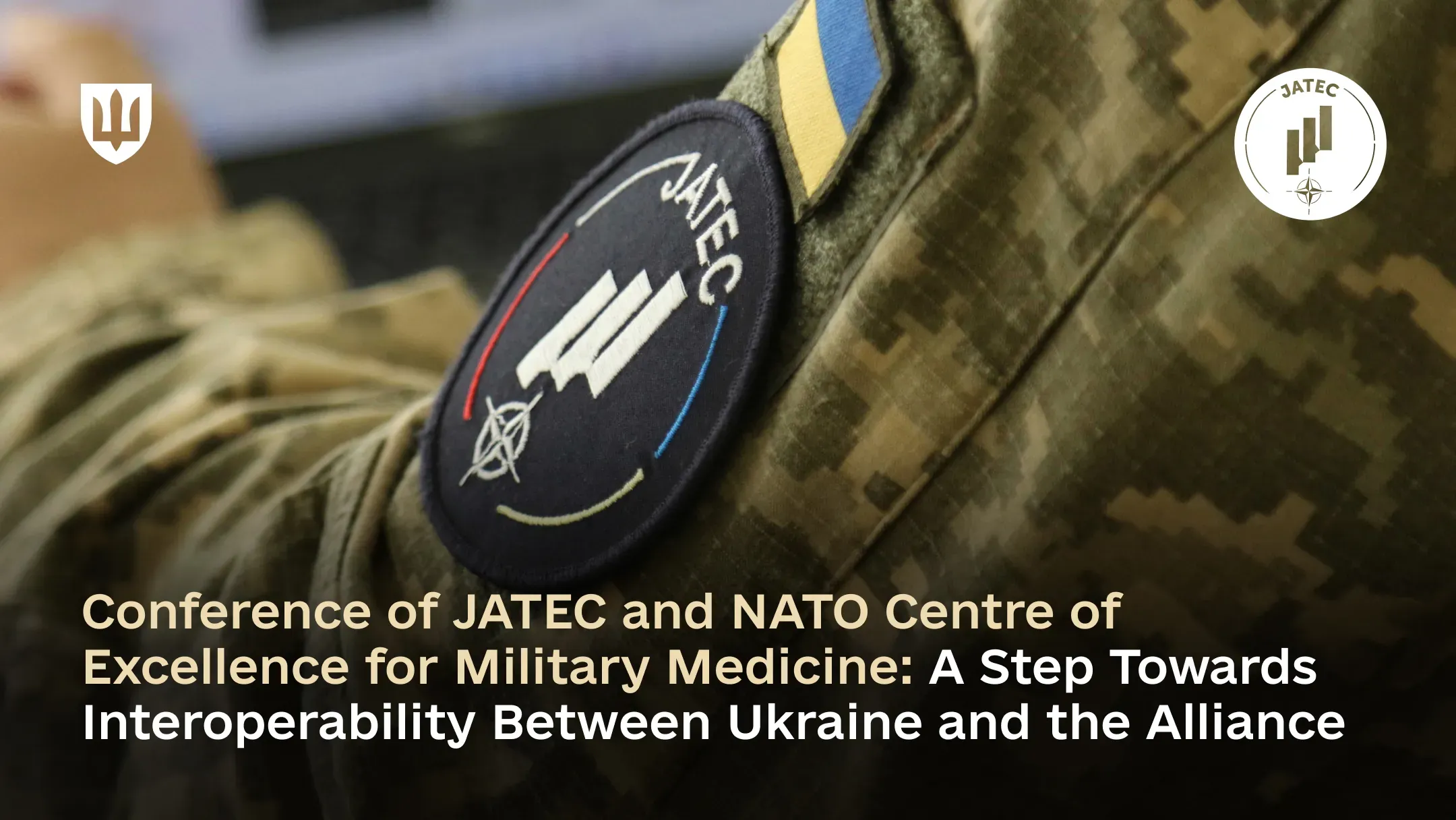Conference of JATEC and NATO Centre of Excellence for Military Medicine: A step toward Ukraine-NATO interoperability

The Ministry of Defence of Ukraine, along with other components of the Defence Forces and NATO, are working on updating guidelines for identifying and treating infections resulting from combat injuries. This issue has become particularly urgent in the context of intense combat operations, where antibiotics are heavily used, and the evacuation and diagnosis of the wounded are complicated.
The NATO-Ukraine Joint Analysis, Training, and Education Centre (JATEC) and the NATO Centre of Excellence for Military Medicine (MILMED COE) held an expert online workshop addressing antimicrobial resistance (AMR) and strengthening infection prevention and control (IPAC).
The event brought together medical representatives from military hospitals and medical units of the Armed Forces of Ukraine, as well as from the United Kingdom, France, the United States, the Netherlands, Germany, Portugal, Greece, Romania, Canada, and Lithuania.
The primary focus of the meeting was on the treatment of combat wound infections and the development of practical measures to address AMR and improve IPAC both in Ukraine and NATO countries.
“The outcomes of this meeting are a significant step toward achieving medical interoperability with NATO. They also lay the foundation for future initiatives aimed at strengthening international cooperation in this field,” emphasized Colonel Valerii Vyshnivskyi, JATEC Director for Programme Implementation.
Participants from Ukraine and NATO member and partner countries analyzed Ukraine’s experience, developed process maps for treating combat injuries, and identified key risks, available resources, and opportunities for scaling these efforts.
Captain (Navy) Dr. Jeff Ricks (MD), Chief of the Lesson Learned and Innovation Branch at the NATO Centre of Excellence for Military Medicine, emphasized the importance of exchanging such knowledge and experience.
“Integrated civil and military efforts to address AMR challenges and implement IPAC measures in Ukraine will improve the quality of care for war casualties, reduce the global impact of the AMR threat, and provide valuable insights to strengthen the Alliance’s readiness,” he stated.
The outcomes of this meeting are expected to advance medical interoperability with NATO, establish strategic guidelines for both Ukraine and NATO, and form the basis for future initiatives aimed at enhancing medical resilience in armed conflicts.